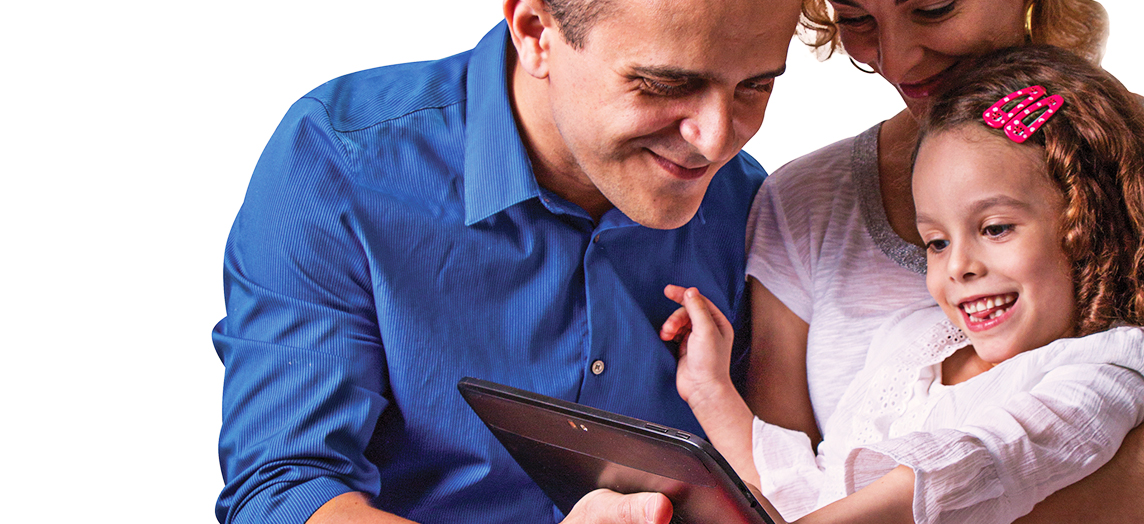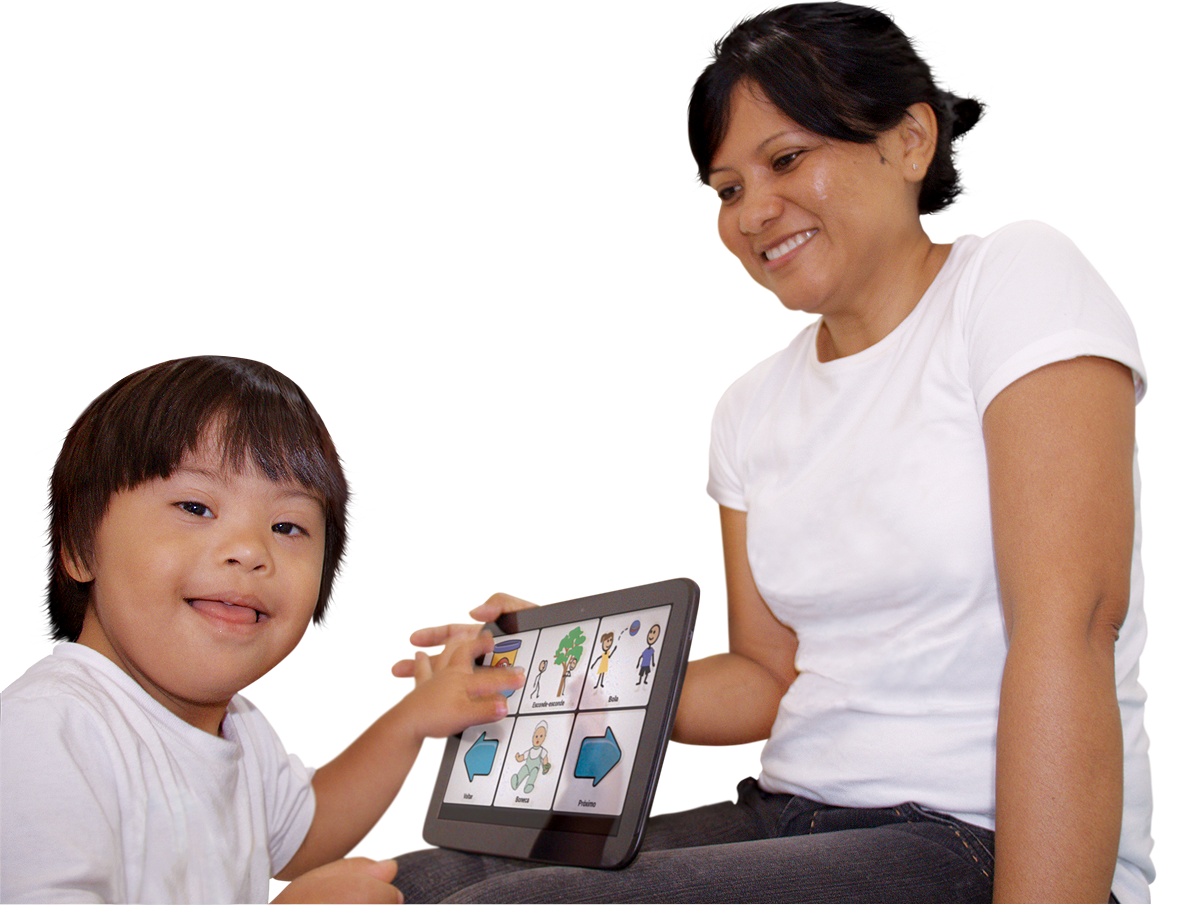Checking in with our epA 2019 winners – a blog series: Livox

In this 11-part blog series, we will be checking in with our empowering people. Award (epA) 2019 winners to see what they’ve been up to since our most recent award ceremony in Cairo last July. Check out what’s new with Livox!
Below is an interview with Carlos Pereira, CEO of Livox.
Siemens Stiftung: Firstly, can you explain to your fellow empowering people. Network (epN) members and readers what you do, where you do it, and, most importantly, why?
Carlos: At Livox, we develop technologies that enable non-verbal people with disabilities and people with learning disabilities to communicate and learn. We are from Brazil and our main markets are Brazil, the United States, and the Middle East. We do this first because my daughter was born with Cerebral Palsy due to a medical mistake during labor.
 Carlos with his wife and daughter, Clara – the reason behind all of their work.
Carlos with his wife and daughter, Clara – the reason behind all of their work.
Secondly, people with disabilities are the biggest minority on earth and they are the group with the highest risk of social exclusion. So, something that started as a personal story is now helping thousands of people with disabilities across the globe. If we are being really honest about building a more equitable and inclusive society, people with disabilities must not be left behind.
 A child with his mother – learning hands on with Livox.
A child with his mother – learning hands on with Livox.
Siemens Stiftung: More than half a year ago, you were a winner of the empowering people. Award 2019. What has/have been the major change(s) for your company and team since then? For you as an entrepreneur?
Carlos: We have started to work a little bit more in the United States and we have built technologies to make learning, compliance, and accountability easier for people with disabilities and the ones taking care of them. For me, as an entrepreneur, the last year provided a lot of growth both personally and professionally. With the Covid-19 pandemic, I also started to figure out ways to help one of the most affected populations – people with disabilities. I am glad that some of our work is starting to pay off.
Siemens Stiftung: After your participation in the award ceremony and the empowering people. Workshop, that focused on story telling for social entrepreneurs and peer coaching, have you made any changes to the way you operate? If so, what changes?
Carlos: One of the things that helped me was to work towards accountability by engaging all the actors that depend on our solution. This is very important because our solution becomes more successful when more actors (like parents, caregivers, school managers, etc.) are working on it.
Siemens Stiftung: What has been your biggest success, personally or professionally, since then?
Carlos: Recently we did an amazing job in Kentucky, USA and this work was so good that it enabled us to enter another market – Florida. In Brazil, right before the pandemic, we also reached a new milestone with more than 9,000,000 words spoken by non-verbal people with disabilities just in the last year. Personally, I was happy to be a part of the financial training workshops in Colombia coordinated by the empowering people. Network. This was really an eye-opener for me since I previously had no background in finance.
Siemens Stiftung: What are you working on now? And what are your future plans?
Carlos: Right now, we are working on the Covid-19 response. In developed countries like the United States, parents and teachers are suing the government over equal opportunities rights. This means that people with disabilities are not getting equal opportunities to learn, even in developed countries like the USA. That’s why we created strategies aimed at helping people with disabilities to have access to proper education aligned with the curriculum of each country. Almost nobody else is doing this. Recently, we were examining a Covid-19 grant research tool provided by the World Economic Forum, and out of 1,650 grant opportunities, only three were specifically aimed at people with disabilities.
 Carlos was involved in many workshops at epAward in Cairo last year.
Carlos was involved in many workshops at epAward in Cairo last year.
That is less than 0.25% of the total submissions … submissions which, in turn, can support a population of 1 billion people! We plan to solidify our presence in Latin America and the Middle East in the future.
Siemens Stiftung: With your membership, in what way(s) do you hope to benefit from epN? And if applicable, how have you already gained from your connection to the ecosystem?
Carlos: I love the hands-on approach of the epN, especially the workshops. Like I mentioned before, I just loved the workshop on finances in Colombia. It really helped me to understand the financial needs of my company and what I need to do to accomplish some of these goals.
Siemens Stiftung: Thank you, Carlos! The work you and your team do day in and day out really has an impact on the lives of so many. Good luck with your expansion efforts in the US!